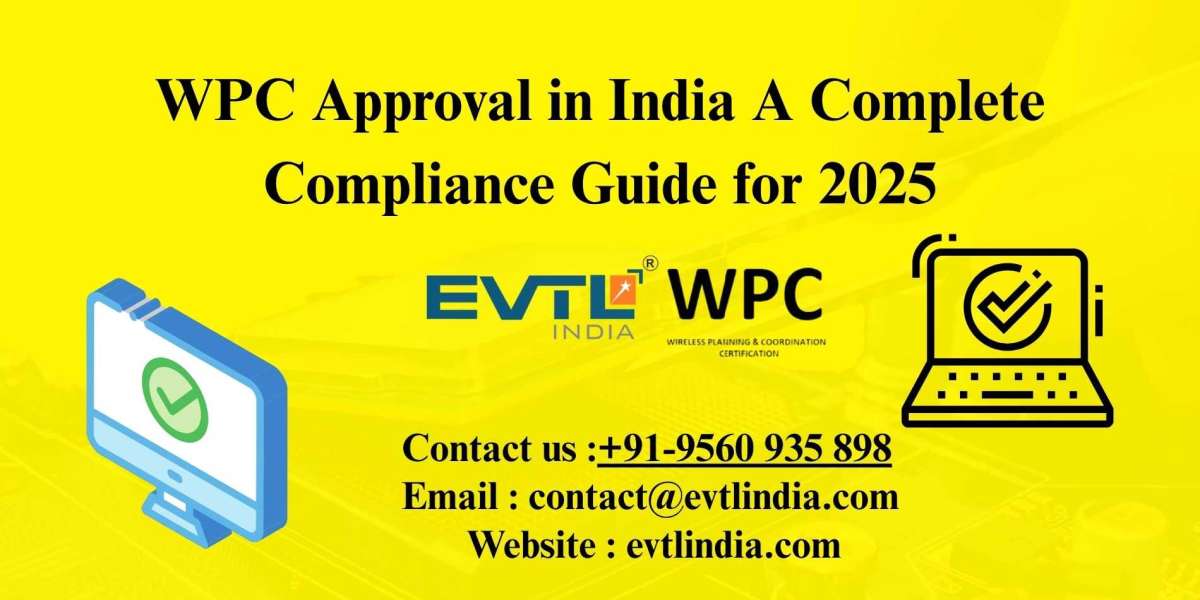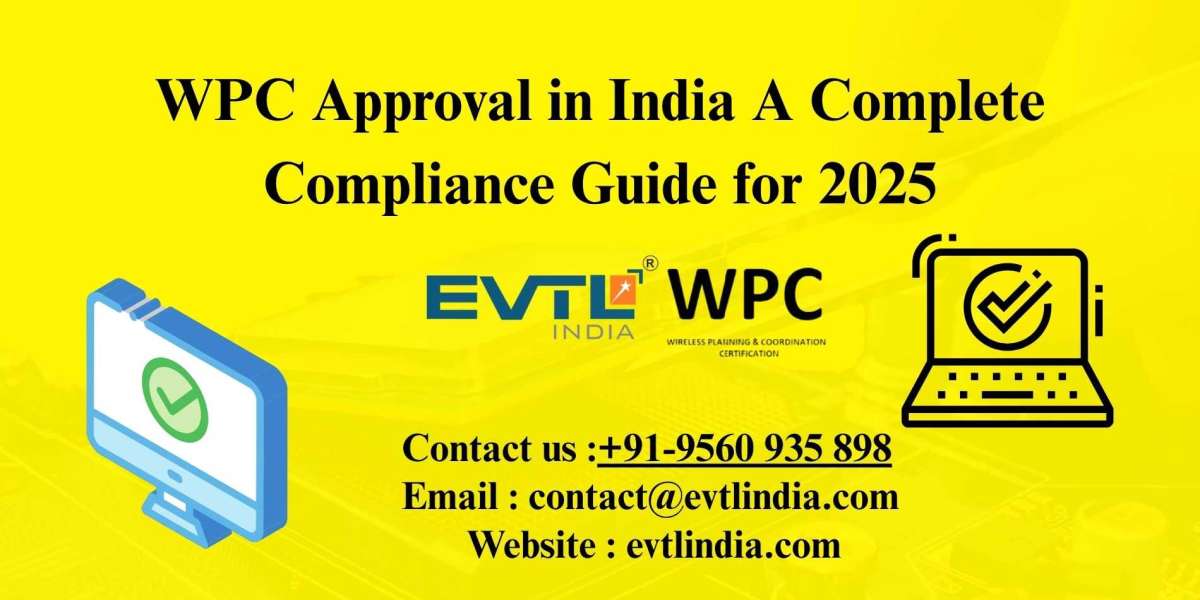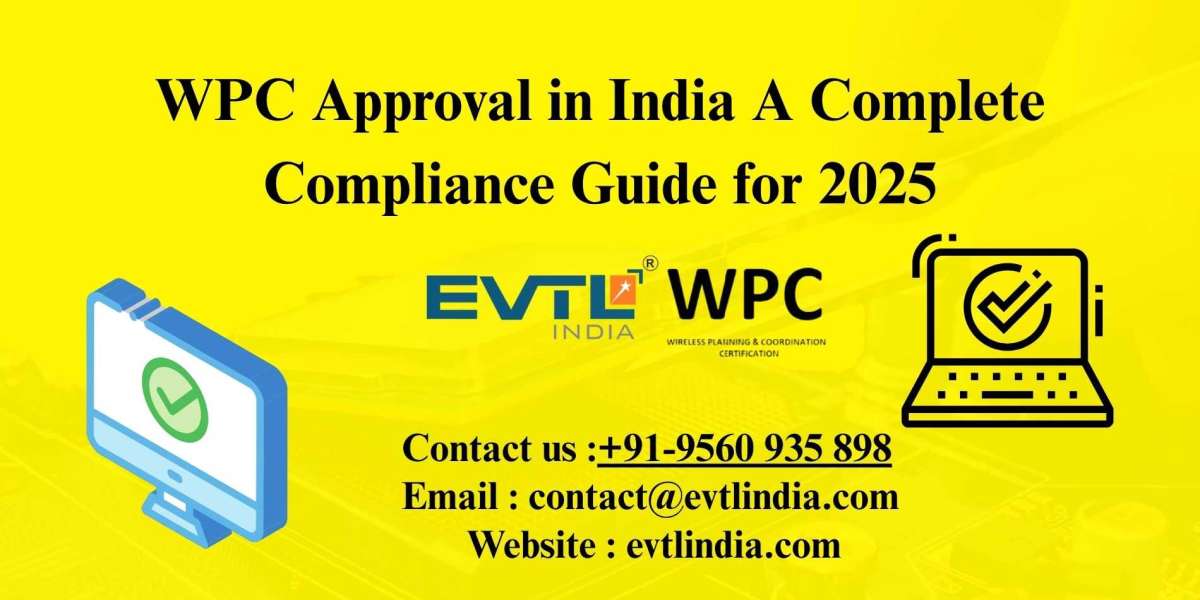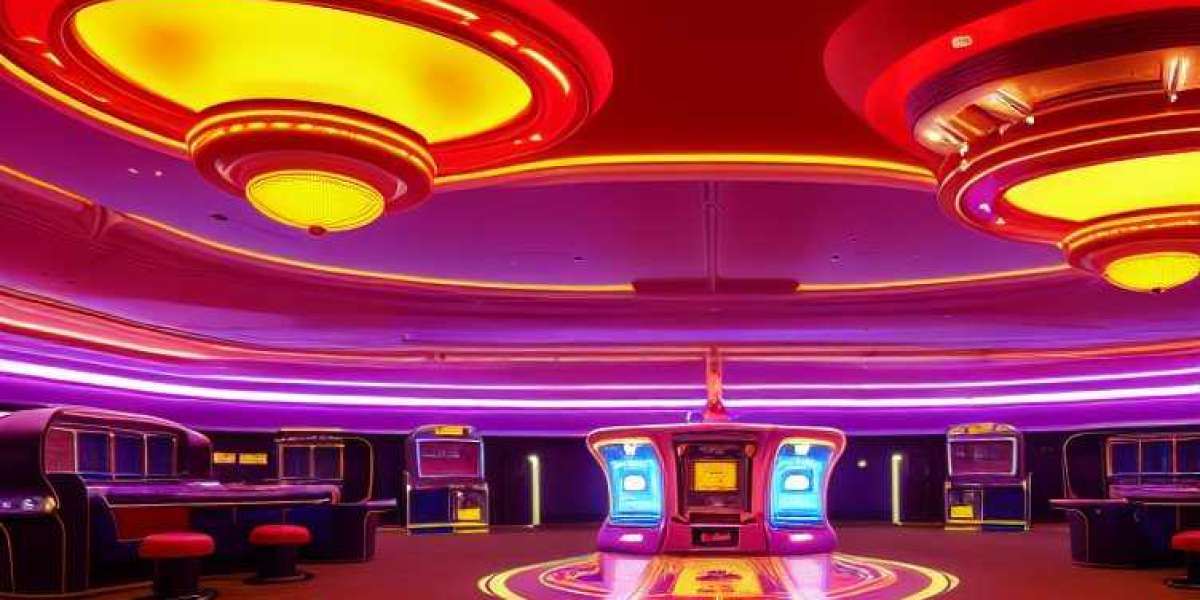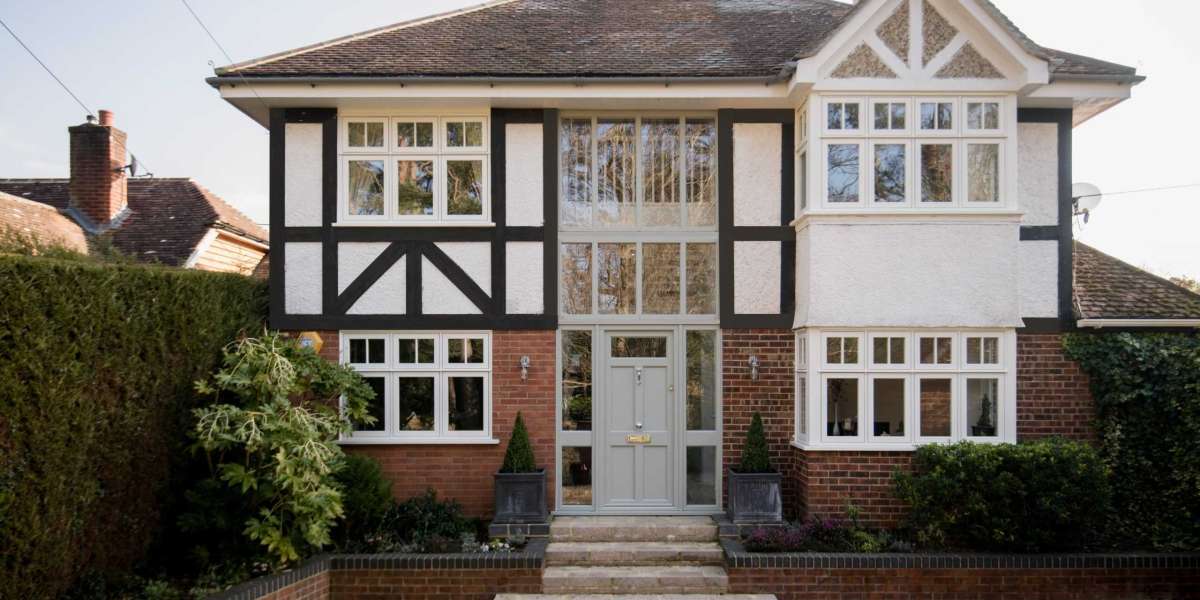India is experiencing rapid growth in wireless technologies—Bluetooth-enabled gadgets, Wi-Fi-connected devices, IoT applications, smart home systems, and wireless peripherals have flooded the market. But before any such device can be manufactured, sold, or imported into the Indian market, it must meet regulatory requirements set by the Wireless Planning Coordination (WPC) Wing of the Department of Telecommunications (DoT).If you're planning to launch wireless devices in India, obtaining WPC Approval (also known as ETA Approval) is mandatory. This guide provides a detailed overview of the WPC approval process in 2025, its legal significance, applicable devices, documentation needs, and how a trusted WPC Consultant can ensure a smooth and fast approval.
What is WPC Approval in India?
WPC Approval, officially known as Equipment Type Approval (ETA), is a certification granted by the WPC Wing of DoT that allows the use of wireless equipment in license-free frequency bands.
The certification ensures that:
Devices operate within approved frequency ranges
Radio transmissions do not interfere with other networks
Power levels comply with Indian norms
Products are safe and legally marketable in India
Why WPC ETA Certification Matters Before Product Launch
If your product includes any wireless communication module (e.g., Bluetooth, Wi-Fi, Zigbee, RFID), ETA Approval is compulsory before launch. Without this certification:
Customs authorities can seize your shipment
Retailers can reject distribution
Online platforms can delist your product
You can face legal penalties
Whether you're a brand owner, importer, or manufacturer, securing WPC ETA Certification is your ticket to a legal product launch in India
Who Needs WPC Approval in 2025?
You need ETA Approval if you're involved in any of the following:
Importing wireless-enabled products
Manufacturing devices that use unlicensed frequency bands
Selling white-labeled gadgets from OEMs
Running an e-commerce brand dealing in wireless tech
Launching a smart home or IoT hardware product
Even small startups or D2C brands must comply with WPC regulations before market entry.
Types of Devices That Require WPC ETA Certification
Here are common devices that require WPC Approval:
| Device Type | Examples |
|---|---|
| Bluetooth Devices | Headphones, Speakers, Smartwatches, Fitness Bands |
| Wi-Fi Devices | Routers, Modems, CCTV Cameras, Laptops |
| IoT Devices | Smart Plugs, Zigbee Controllers, Wearables |
| RFID Systems | Asset Trackers, Inventory Scanners, Logistic Tags |
| Wireless IT Peripherals | Mice, Keyboards, Presenters, Barcode Scanners |
Understanding License-Free Frequencies
In India, certain frequency bands are categorized as “license-free,” which means you don't need a wireless operator license—but you still need ETA Approval.
Common License-Free Bands in India:
2.4 GHz – 2.4835 GHz (used in Bluetooth, Wi-Fi 802.11b/g/n)
5.150 GHz – 5.825 GHz (used in Wi-Fi 802.11ac/n/ax)
865 MHz – 867 MHz (used in RFID systems)
Step-by-Step Process for WPC ETA Certification in 2025
Let’s walk through the updated process of obtaining WPC ETA Certification this year.
Step 1: Product Evaluation
Start by identifying if your product:
Uses RF modules
Operates in license-free frequency bands
Falls under the categories listed by DoT
If yes, you're required to apply for ETA Approval.
Step 2: RF Testing in NABL-Accredited Lab
The next step is Radio Frequency (RF) Testing at a NABL-accredited lab in India. This ensures your device complies with Indian standards.
Test Report Includes:
Frequency range and bandwidth
Output power
Channel specifications
Spurious emissions
Antenna type
✅ Even if you already have CE/FCC certification, Indian RF testing is mandatory for ETA.
Step 3: Register on Saral Sanchar Portal
Visit the official government portal
Create a company login by submitting:
PAN and GST details
Import Export Code (IEC)
Authorized contact person’s ID
Email and mobile OTP verification
Once registered, you can submit your ETA application digitally.
Step 4: Upload Application and Documents
Submit the application for WPC ETA Certification along with:
RF Test Report (from NABL lab)
Product datasheet or brochure
Brand authorization letter (if applicable)
Product label image (showing model and frequency)
IEC and business documents
A WPC Consultant can help you format and prepare all documents to avoid errors.
Step 5: Review and Approval
The WPC Wing reviews your application. If everything is correct:
Approval is granted within 7–15 working days
You receive a digital ETA Certificate with unique reference number
Step 6: Certificate Usage and Product Labeling
The ETA Certificate must be:
Kept for compliance and customs inspection
Linked to each product model (can’t be shared across variants)
Submitted during BIS approval or e-commerce onboarding (if requested)
ETA Approval for Imported Products
If you are importing Bluetooth or Wi-Fi products from countries like China, Korea, USA, or Taiwan:
RF Testing must be done in India
Label and test report must match exact model name
OEM authorization letter is required
The Indian importer or brand owner must apply
WPC approval must be obtained before shipment arrives
A WPC Consultant is often used to ensure accurate certification before customs clearance.
What Happens Without WPC ETA Approval?
Non-compliance with WPC regulations can lead to:
Confiscation of goods by customs
Heavy penalties or fines
Product bans from online marketplaces
Legal disputes and import license issues
To avoid such issues, timely ETA Approval is the safest route to launch in India.
Benefit of Hiring a WPC Consultant
Applying for WPC certification involves dealing with technical documents, lab coordination, and legal guidelines. A professional WPC Consultant can:
Key Services Offered:
Analyze whether your product needs ETA
Coordinate RF testing and documentation
Register and manage Saral Sanchar portal account
Submit application error-free
Track approval status and follow up with WPC
Ensure model number and frequency alignment
Handle import compliance at customs
This is especially helpful for:
Startups
Importers dealing with multiple SKUs
Brands with limited in-house compliance teams
WPC ETA Certification Timeline (2025)
| Stage | Estimated Duration |
|---|---|
| RF Testing at NABL Lab | 3–5 working days |
| Portal Registration | 1–2 working days |
| Application Review | 7–10 working days |
| Certificate Grant | Total: 10–15 working days |
WPC ETA Validity and Renewal
WPC ETA Certificates do not expire unless:
The product specs change
A new model or variant is introduced
You must apply separately for each model or RF chip combination
Common Misconceptions About WPC Approval
| Misconception | Reality |
|---|---|
| "My product is CE/FCC certified" | You still need WPC ETA Certification in India |
| "I can use the same ETA for all models" | ETA is model-specific, not brand-specific |
| "Test report from China is valid" | Only NABL-accredited Indian RF labs are accepted |
| "ETA approval is optional" | It’s legally mandatory for all license-free devices |
Conclusion
If you're planning to launch Bluetooth or Wi-Fi-based products in India in 2025, then WPC ETA Consultant is the first regulatory gate you must pass. From RF testing to application via the Saral Sanchar portal, the process may seem complex—but with the right guidance, it can be completed smoothly within 10–15 days. Working with a professional WPC Consultant helps avoid document errors, unnecessary delays, or customs rejections. Whether you're importing from China, launching a D2C brand, or innovating with IoT, following this WPC Approval Guide will ensure your launch is compliant, fast, and risk-free.
FAQs
Q1: Can I apply for ETA Approval without importing the product yet?
A: Yes. You can apply using test reports and label images before importing.
Q2: Is RF testing compulsory even if the device is globally approved?
A: Yes. Indian RF testing is mandatory for all ETA applications.
Q3: Can one ETA certificate be used for multiple models?
A: No. ETA is issued per model, not per brand or product line.
Q4: How mch does ETA Approval cost?
A: Government does not charge for license-free bands, but lab testing and consultancy may cost ₹8,000–₹25,000 depending on complexity.
Q5: Who should apply—importer or OEM?
A: The Indian importer, brand owner, or a licensed WPC Consultant must apply.
